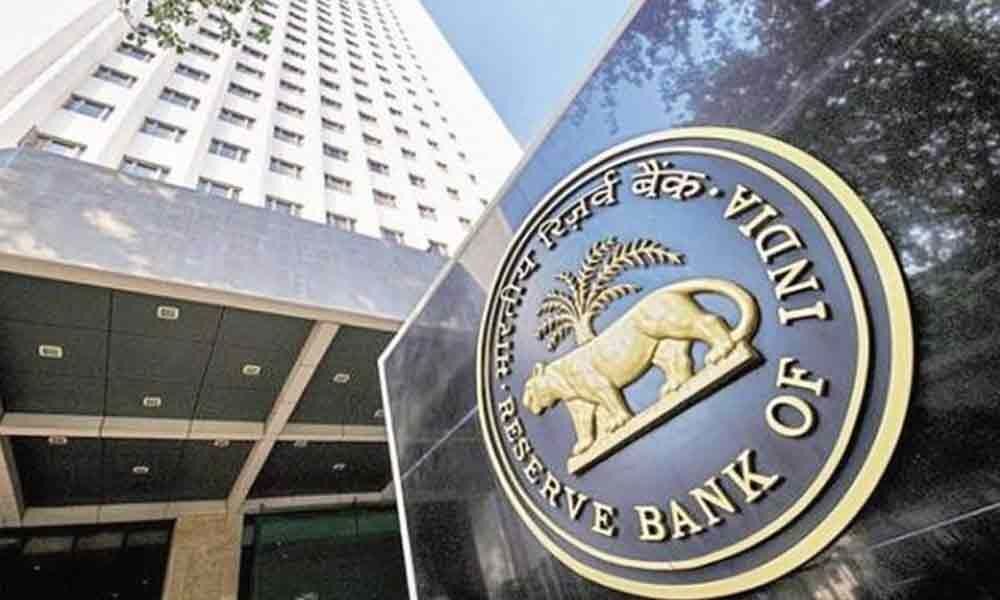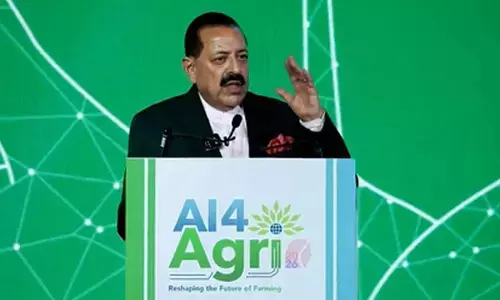Sectoral policy intervention in works, no fiscal stimulus

The Finance Ministry is holding back-to-back discussions with the Prime Minister's office and the Reserve Bank of India to come out with a sectoral policy package at the earliest but sources rule out any fiscal stimulus having direct revenue implications.
New Delhi, Aug 18 (IANS) The Finance Ministry is holding back-to-back discussions with the Prime Minister's office and the Reserve Bank of India to come out with a sectoral policy package at the earliest but sources rule out any fiscal stimulus having direct revenue implications.
There will be relief to the sectors in stress through policy interventions like for the auto sector, the industry's demand for a separate refinance window under the RBI is being discussed.
On the FPI surcharge issue, options still being discussed and no conclusion has been arrived at, as FPIs continue to pull funds from equity market.
The demand for GST rate cut for auto sector from 28 per cent to 18 per cent is also currently not under discussion as only 30 items remain in the highest slab of 28 per cent from the original list of as many as 235.
According to an estimate, a rate reduction for two-wheelers to 18 per cent from the current 28 per cent will reduce the GST mop-up by about Rs 6,000 crore a year, added the sources.
The RBI and the government are also in talks with PSBs to have flexibility in lending to the auto and its ancillary sectors so that the slump could be checked and sales of vehicles boosted. Both the RBI and the Finance Ministry are likely to ask PSU banks to carve out suitable customised lendings to auto dealers without affecting their NPA situation.
Then there is the proposal of the apex NBFC body, the Finance Industry Development Council (FIDC), which has sought from the government that they should be allowed to avail of refinance facility under the Mudra scheme and a permanent refinance window at the RBI be set up - similar to the one that National Housing Bank (NHB) has - so that it can offer them liquidity at need. There is a need to find an alternative source of funding for them outside the banking channels and a dedicated refinance window can be helpful, the FIDC had told the Finance Ministry recently. This will help even to lend funds to the automobile MSMEs which are facing the maximum slowdown, it had said.
The Finance Ministry's first priority is handling the FPI tax, which is pushing FIIs to a flight of capital, further aggravating the gloom scenario. While sources said a full roll back has not so far been discussed but options - a delay in notifying the super rich tax, 'grandfathering' till an extended period, and so on - are being discussed as to what can be done in the prevailing situations, the sources said.
Discussions are still on between the PMO and the FDinance Ministry on the way out of this without resorting to a complete roll back, but no decision has been taken on any of these issues, they added.
Ashwin Mahajan, convenor of Swadeshi Jagran Manch (SJM), the economic wing of the RSS, the parent organisation of the ruling BJP, said: "The government must solve the problems of the banks, NBFCs and help them generating the flow of credit to the automobile sector."
"The auto sector has linkages with employment and if it does not flourish, the whole eco-system is disturbed. That is the reason why people are losing jobs and therefore instead of giving booster packages which have always proved disastrous for the economy earlier also... In 2011-12 when booster packages were given, it led to huge inflation and that slowed down the economy then.... If government finances do not allow you to offer such packages rather there has to be policy corrections and some help for the NBFCs for growth," he added.








